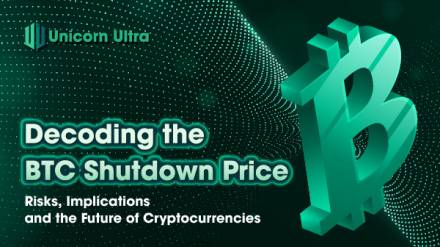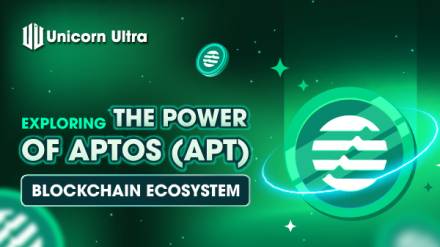The gaming industry is constantly evolving, and with the rise of blockchain technology, a new form of gaming has emerged - NFT games. Non-fungible tokens (NFTs) have revolutionized the way players interact with virtual worlds, allowing for true ownership and unique in-game assets. In this blog post, we will explore the concept of NFT games, delve into how they work, and highlight the top NFT games to play in 2023. Furthermore, we will discuss how you can potentially earn money by engaging with these immersive gaming experiences.
Table of Contents
Top NFT Games to Play in 2023
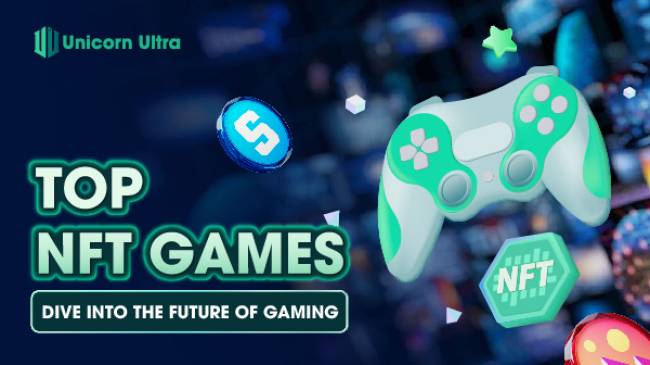
Axie Infinity
Axie Infinity is a popular NFT game where players can breed, battle, and trade adorable creatures called Axies. Players can earn the in-game currency, Smooth Love Potion (SLP), by participating in battles and completing quests.
Alien Worlds
Alien Worlds is a decentralized metaverse where players can own and trade virtual land and resources. By mining and exploring different planets, players can earn the in-game cryptocurrency, Trilium (TLM), and participate in governance decisions.
Gods Unchained
Gods Unchained is a digital trading card game where players can collect and trade unique cards representing powerful gods and creatures. These cards are NFTs and can be used to compete in strategic battles against other players.
The Sandbox
The Sandbox is a virtual world where players can create, own, and monetize their own voxel-based gaming experiences. Players can build and design their own games and sell NFT assets within the marketplace.
Splinterlands
Splinterlands is a digital collectible card game that combines elements of strategy and trading. Players can collect unique monster cards, build decks, and battle against other players to earn rewards.
Sorare
Sorare is a fantasy football game powered by blockchain technology. Players can collect, trade, and manage virtual player cards representing real-life football players. These cards can be used to compete in leagues and tournaments.
The Walking Dead - Empires
Based on the popular TV series, The Walking Dead: Empires is a location-based strategy game where players can build and defend their own safe zones. NFTs represent characters, weapons, and other items that can be used in battles.
Dogami
Dogami is an NFT game that combines pet simulation and strategy. Players can collect, breed, and train virtual dogs and compete against other players in various challenges and tournaments.
The Parallel
The Parallel is a virtual world where players can own and trade virtual land, buildings, and unique items. It offers various gameplay experiences, including exploration, social interaction, and entrepreneurship.
Illuvium
Illuvium is a decentralized, open-world RPG where players can collect and battle creatures called Illuvials. These creatures are NFTs and have different attributes and abilities that can be upgraded and traded.
Star Atlas
Star Atlas is an ambitious space-themed metaverse that combines elements of strategy, exploration, and role-playing. Players can own and trade virtual starships, engage in space battles, and participate in an evolving narrative.
How do NFT Games Work?
NFT games operate on blockchain networks, such as Ethereum or Binance Smart Chain, which ensure transparency, security, and decentralization. Players can acquire NFTs through various means, such as purchasing them from marketplaces or earning them through gameplay. These NFTs can represent anything from in-game characters, weapons, virtual real estate, or even digital art.
The ownership of these NFTs is recorded on the blockchain, providing a transparent and immutable ledger of transactions. Players can freely trade or sell their NFTs on specialized marketplaces, creating a vibrant ecosystem of digital asset exchange. The scarcity and uniqueness of these assets drive their value, and players can collect, customize, and showcase their NFT collections within the game or in the broader crypto community.
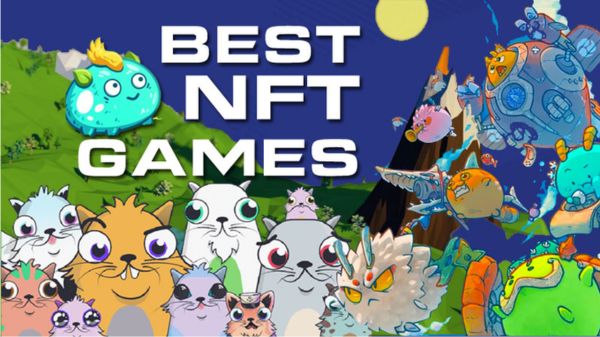
Advantages and disadvantages of NFT Games
NFT (Non-Fungible Token) games have gained significant popularity in recent years, offering unique gaming experiences that leverage blockchain technology and tokenized assets. Like any technology, NFT games come with their own set of advantages and disadvantages. Let's explore both sides:
Advantages of NFT Games
- True Ownership: NFTs grant players true ownership of in-game assets, allowing them to buy, sell, and trade digital items outside of the game environment. Players have full control over their assets, unlike traditional games where items are owned by the game developer.
- Scarcity and Rarity: NFT games can create scarcity and rarity for in-game items, as each NFT is unique and verifiable on the blockchain. This rarity can enhance the value and collectible nature of certain assets.
- Interoperability: NFTs are interoperable across different platforms and games that support the same standards (e.g., ERC-721 or ERC-1155), enabling players to use their assets in multiple games.
- Economic Opportunities: NFT games offer economic opportunities for players, creators, and developers. Players can earn real value by selling valuable in-game assets, and creators can monetize their creations through royalties and NFT sales.
- Play-to-Earn Model: Some NFT games operate on a play-to-earn model, allowing players to earn tokens and assets by participating in the game and contributing to its ecosystem.
- Community Building: NFT games often have strong and engaged communities, fostering a sense of ownership and collaboration among players and developers.
Disadvantages of NFT Games
- High Entry Barriers: NFT games may have high entry barriers due to the need for a cryptocurrency wallet, understanding blockchain technology, and dealing with transaction fees.
- Market Volatility: The value of NFTs and in-game assets can be highly volatile, leading to significant price fluctuations and potential losses for investors and players.
- Environmental Impact: Some NFT games have faced criticism for their environmental impact due to the energy-intensive nature of blockchain networks.
- Lack of Regulation: The NFT space is still relatively unregulated, which can lead to scams, fraud, and potential legal risks for players and investors.
- Security Risks: NFT games may be susceptible to security vulnerabilities and hacks, leading to the loss of valuable assets or funds.
- Gaming Experience: Some NFT games may prioritize the economic aspects over gameplay, leading to imbalances or an emphasis on pay-to-win mechanics.
Overall, NFT games have introduced innovative concepts and opportunities for players, creators, and developers. However, as with any emerging technology, there are risks and challenges that need to be considered. It's essential for users to approach NFT games with caution, conduct thorough research, and understand the risks involved before investing time or money.
How to Make Money with NFT Games?
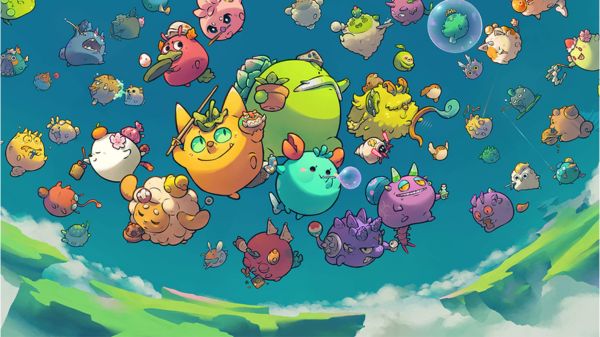
Participating in NFT games offers players various opportunities to earn money. Here are a few ways you can potentially profit from these virtual worlds:
- Play-to-Earn: Many NFT games offer rewards for playing, completing quests, or winning battles. By dedicating time and skill to these games, players can earn valuable in-game assets or cryptocurrencies that can be sold or traded.
- NFT Trading: As the value of NFTs fluctuates, players can buy low and sell high to make a profit. By acquiring rare or sought-after NFTs, players can capitalize on the demand and trade them on dedicated marketplaces.
- Renting or Leasing Assets: Some NFT games allow players to rent or lease their virtual assets to other players. For example, players with valuable in-game properties can earn passive income by allowing others to use their assets for a fee.
- eSports and Tournaments: As NFT games gain popularity, eSports and competitive tournaments are becoming more prevalent. Skilled players can participate in these events and earn prize money or secure sponsorship deals.
Potential risks of playing NFT games
Playing NFT games can be an exciting and rewarding experience, but it also comes with several potential risks that players should be aware of. These risks include:
- Market Volatility: NFT assets, such as in-game items and virtual land, can experience significant price fluctuations due to market demand and speculation. Players who invest in NFTs may face losses if the value of their assets decreases.
- Scams and Fraud: The NFT space is still relatively new and can attract scammers and fraudulent schemes. Players should be cautious when purchasing NFTs from unverified sources or participating in projects with little reputation or transparency.
- Hacking and Security Risks: NFT games and platforms may be vulnerable to hacking and security breaches, leading to the theft of valuable assets or personal information.
- High Transaction Fees: Interacting with NFTs on blockchain networks often involves transaction fees, especially during busy periods. These fees can be significant and may affect the profitability of certain activities within the game.
- Environmental Impact: Some NFT games operate on energy-intensive blockchain networks, contributing to the overall carbon footprint. Players may be concerned about the environmental impact of participating in such games.
- Lack of Regulation: The NFT market is still relatively unregulated, which may lead to legal uncertainties, disputes, and challenges related to ownership and copyright infringement.
- Addiction and Time Commitment: NFT games can be immersive and addictive, leading players to spend significant amounts of time and money on the platform.
- Gaming Experience: Some NFT games may prioritize the economic aspects over gameplay, leading to imbalances or a focus on pay-to-win mechanics.
- Platform Shutdown or Abandonment: NFT games and platforms can be subject to closure or abandonment by developers, leading to the loss of in-game assets and investments.
- Unpredictable Development: Early-stage NFT games may undergo significant changes during development, impacting the value and utility of purchased assets.
To mitigate these risks, players should conduct thorough research before investing time or money in NFT games. They should choose reputable and well-established projects, exercise caution when transacting with NFTs, and be mindful of the potential financial and security implications. It's also essential to understand the terms of service and ownership rights related to NFT assets in each game. Overall, an informed and cautious approach can help players make the most of the opportunities while minimizing potential risks in the NFT gaming space.
Conclusion
NFT games are revolutionizing the gaming industry by introducing true ownership and decentralized economies within virtual worlds. With the top NFT games listed above, players can immerse themselves in exciting gameplay experiences and potentially earn money through various avenues. Whether you're battling creatures, trading virtual assets, or creating your own virtual worlds, NFT games offer a glimpse into the future of gaming, where players truly own their digital assets and can participate in a thriving economy. Embrace this technological leap, dive into the world of NFT games, and unlock new adventures and possibilities. Let's go with U2U to follow the latest information on the market.



